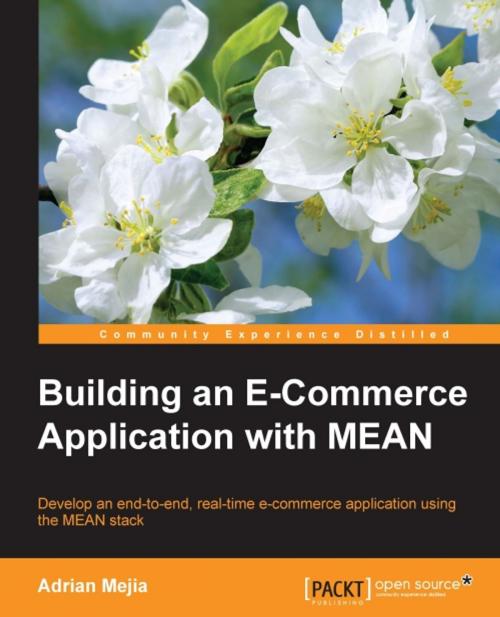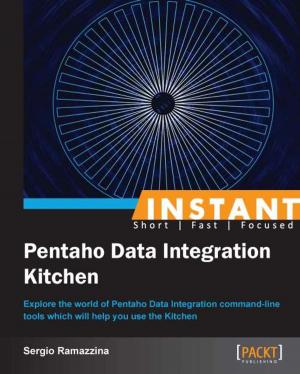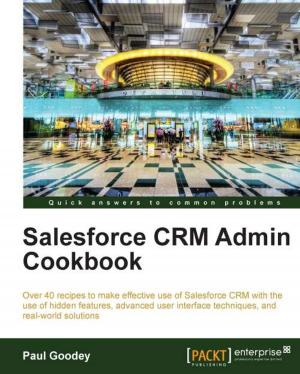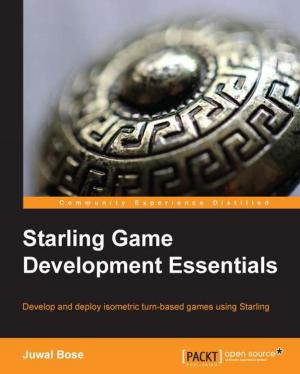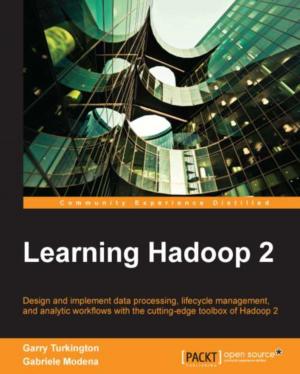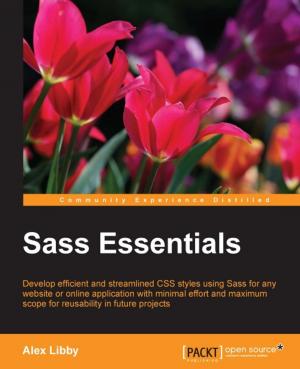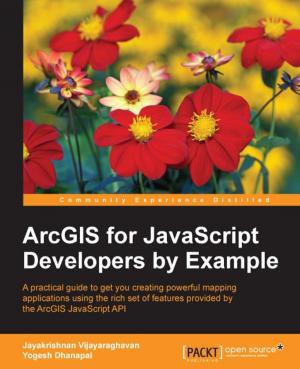Building an E-Commerce Application with MEAN
Nonfiction, Computers, Internet, Web Development, Web Site Design| Author: | Adrian Mejia | ISBN: | 9781785289965 |
| Publisher: | Packt Publishing | Publication: | June 19, 2016 |
| Imprint: | Packt Publishing | Language: | English |
| Author: | Adrian Mejia |
| ISBN: | 9781785289965 |
| Publisher: | Packt Publishing |
| Publication: | June 19, 2016 |
| Imprint: | Packt Publishing |
| Language: | English |
Develop an end-to-end, real-time e-commerce application using the MEAN stack
About This Book
- Build all the main components of an e-commerce website and extend its high-quality features as per your needs
- Get to grips with the full-stack JavaScript to build attractive e-commerce sites and start making money
- A step-by-step guide to developing the MEAN stack components from scratch to achieve maximum flexibility when building an e-commerce application
Who This Book Is For
This book is for a web or full stack JavaScript developer who wants to get a head start on developing an e-commerce application with MEAN. A basic knowledge of the MEAN stack is highly recommended.
What You Will Learn
- Employ AngularJS to build responsive UI components
- Implement multiple authentication strategies such as OAuth, JsonWebToken, and Sessions
- Enhance website usability with social logins such as Facebook, Twitter, and Google
- Create integrations with payment platforms such as PayPal
- Apply full-text search functionality in MongoDB
- Build a flexible categorization system to organize your products
- Secure your app by creating SSL certificates and run payment platforms in a live environment
In Detail
MEAN stands for MongoDB, Express, AngularJS, and Node.js. It is a combination of a NoSQL database, MongoDB, with a couple of JavaScript web application frameworks, namely Express.js and Angular.js. These run on Node.js.
There is always an ever-growing list of requirements while designing an e-commerce application, which needs to be flexible enough for easy adaptation. The MEAN stack allows you to meet those requirements on time and build responsive applications using JavaScript.
This book will show you how to create your own e-commerce application using the MEAN stack. It will take you step by step through the parallel process of learning and building. It will also teach you to develop a production-ready, high-quality e-commerce site from scratch and will provide the knowledge you need to extend your own features to the e-commerce site.
This book starts with a short introduction to the MEAN stack, followed by a step-by-step guide on how to build a store with AngularJS, set up a database with MongoDB, create a REST API, and wire AngularJS. It also shows you how to manage user authentication and authorization, check multiple payment platforms, add products' search and navigation, deploy a production-ready e-commerce site, and finally add your own high-quality feature to the site.
By the end of the book, you will be able to build and use your own e-commerce app in the real world and will also be able to add your own new features to it.
Style and approach
This book is a step-by-step guide on how to build a real-time e-commerce app with MEAN. Each transition is well explained, and each chapter begins with the required background knowledge.
Develop an end-to-end, real-time e-commerce application using the MEAN stack
About This Book
- Build all the main components of an e-commerce website and extend its high-quality features as per your needs
- Get to grips with the full-stack JavaScript to build attractive e-commerce sites and start making money
- A step-by-step guide to developing the MEAN stack components from scratch to achieve maximum flexibility when building an e-commerce application
Who This Book Is For
This book is for a web or full stack JavaScript developer who wants to get a head start on developing an e-commerce application with MEAN. A basic knowledge of the MEAN stack is highly recommended.
What You Will Learn
- Employ AngularJS to build responsive UI components
- Implement multiple authentication strategies such as OAuth, JsonWebToken, and Sessions
- Enhance website usability with social logins such as Facebook, Twitter, and Google
- Create integrations with payment platforms such as PayPal
- Apply full-text search functionality in MongoDB
- Build a flexible categorization system to organize your products
- Secure your app by creating SSL certificates and run payment platforms in a live environment
In Detail
MEAN stands for MongoDB, Express, AngularJS, and Node.js. It is a combination of a NoSQL database, MongoDB, with a couple of JavaScript web application frameworks, namely Express.js and Angular.js. These run on Node.js.
There is always an ever-growing list of requirements while designing an e-commerce application, which needs to be flexible enough for easy adaptation. The MEAN stack allows you to meet those requirements on time and build responsive applications using JavaScript.
This book will show you how to create your own e-commerce application using the MEAN stack. It will take you step by step through the parallel process of learning and building. It will also teach you to develop a production-ready, high-quality e-commerce site from scratch and will provide the knowledge you need to extend your own features to the e-commerce site.
This book starts with a short introduction to the MEAN stack, followed by a step-by-step guide on how to build a store with AngularJS, set up a database with MongoDB, create a REST API, and wire AngularJS. It also shows you how to manage user authentication and authorization, check multiple payment platforms, add products' search and navigation, deploy a production-ready e-commerce site, and finally add your own high-quality feature to the site.
By the end of the book, you will be able to build and use your own e-commerce app in the real world and will also be able to add your own new features to it.
Style and approach
This book is a step-by-step guide on how to build a real-time e-commerce app with MEAN. Each transition is well explained, and each chapter begins with the required background knowledge.
